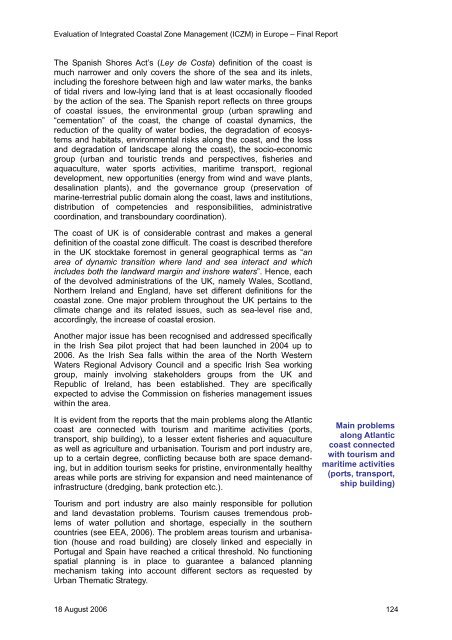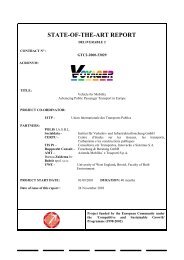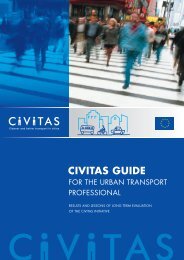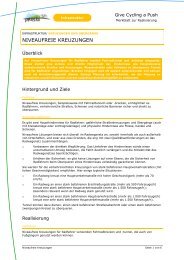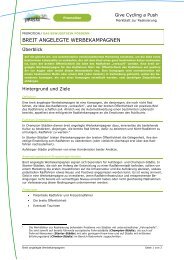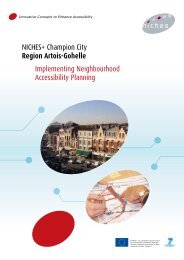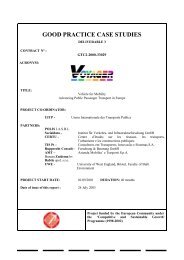Evaluation of Integrated Coastal Zone Management (ICZM) in ...
Evaluation of Integrated Coastal Zone Management (ICZM) in ...
Evaluation of Integrated Coastal Zone Management (ICZM) in ...
Create successful ePaper yourself
Turn your PDF publications into a flip-book with our unique Google optimized e-Paper software.
<strong>Evaluation</strong> <strong>of</strong> <strong>Integrated</strong> <strong>Coastal</strong> <strong>Zone</strong> <strong>Management</strong> (<strong>ICZM</strong>) <strong>in</strong> Europe – F<strong>in</strong>al Report<br />
The Spanish Shores Act’s (Ley de Costa) def<strong>in</strong>ition <strong>of</strong> the coast is<br />
much narrower and only covers the shore <strong>of</strong> the sea and its <strong>in</strong>lets,<br />
<strong>in</strong>clud<strong>in</strong>g the foreshore between high and law water marks, the banks<br />
<strong>of</strong> tidal rivers and low-ly<strong>in</strong>g land that is at least occasionally flooded<br />
by the action <strong>of</strong> the sea. The Spanish report reflects on three groups<br />
<strong>of</strong> coastal issues, the environmental group (urban sprawl<strong>in</strong>g and<br />
“cementation” <strong>of</strong> the coast, the change <strong>of</strong> coastal dynamics, the<br />
reduction <strong>of</strong> the quality <strong>of</strong> water bodies, the degradation <strong>of</strong> ecosystems<br />
and habitats, environmental risks along the coast, and the loss<br />
and degradation <strong>of</strong> landscape along the coast), the socio-economic<br />
group (urban and touristic trends and perspectives, fisheries and<br />
aquaculture, water sports activities, maritime transport, regional<br />
development, new opportunities (energy from w<strong>in</strong>d and wave plants,<br />
desal<strong>in</strong>ation plants), and the governance group (preservation <strong>of</strong><br />
mar<strong>in</strong>e-terrestrial public doma<strong>in</strong> along the coast, laws and <strong>in</strong>stitutions,<br />
distribution <strong>of</strong> competencies and responsibilities, adm<strong>in</strong>istrative<br />
coord<strong>in</strong>ation, and transboundary coord<strong>in</strong>ation).<br />
The coast <strong>of</strong> UK is <strong>of</strong> considerable contrast and makes a general<br />
def<strong>in</strong>ition <strong>of</strong> the coastal zone difficult. The coast is described therefore<br />
<strong>in</strong> the UK stocktake foremost <strong>in</strong> general geographical terms as “an<br />
area <strong>of</strong> dynamic transition where land and sea <strong>in</strong>teract and which<br />
<strong>in</strong>cludes both the landward marg<strong>in</strong> and <strong>in</strong>shore waters”. Hence, each<br />
<strong>of</strong> the devolved adm<strong>in</strong>istrations <strong>of</strong> the UK, namely Wales, Scotland,<br />
Northern Ireland and England, have set different def<strong>in</strong>itions for the<br />
coastal zone. One major problem throughout the UK perta<strong>in</strong>s to the<br />
climate change and its related issues, such as sea-level rise and,<br />
accord<strong>in</strong>gly, the <strong>in</strong>crease <strong>of</strong> coastal erosion.<br />
Another major issue has been recognised and addressed specifically<br />
<strong>in</strong> the Irish Sea pilot project that had been launched <strong>in</strong> 2004 up to<br />
2006. As the Irish Sea falls with<strong>in</strong> the area <strong>of</strong> the North Western<br />
Waters Regional Advisory Council and a specific Irish Sea work<strong>in</strong>g<br />
group, ma<strong>in</strong>ly <strong>in</strong>volv<strong>in</strong>g stakeholders groups from the UK and<br />
Republic <strong>of</strong> Ireland, has been established. They are specifically<br />
expected to advise the Commission on fisheries management issues<br />
with<strong>in</strong> the area.<br />
It is evident from the reports that the ma<strong>in</strong> problems along the Atlantic<br />
coast are connected with tourism and maritime activities (ports,<br />
transport, ship build<strong>in</strong>g), to a lesser extent fisheries and aquaculture<br />
as well as agriculture and urbanisation. Tourism and port <strong>in</strong>dustry are,<br />
up to a certa<strong>in</strong> degree, conflict<strong>in</strong>g because both are space demand<strong>in</strong>g,<br />
but <strong>in</strong> addition tourism seeks for prist<strong>in</strong>e, environmentally healthy<br />
areas while ports are striv<strong>in</strong>g for expansion and need ma<strong>in</strong>tenance <strong>of</strong><br />
<strong>in</strong>frastructure (dredg<strong>in</strong>g, bank protection etc.).<br />
Ma<strong>in</strong> problems<br />
along Atlantic<br />
coast connected<br />
with tourism and<br />
maritime activities<br />
(ports, transport,<br />
ship build<strong>in</strong>g)<br />
Tourism and port <strong>in</strong>dustry are also ma<strong>in</strong>ly responsible for pollution<br />
and land devastation problems. Tourism causes tremendous problems<br />
<strong>of</strong> water pollution and shortage, especially <strong>in</strong> the southern<br />
countries (see EEA, 2006). The problem areas tourism and urbanisation<br />
(house and road build<strong>in</strong>g) are closely l<strong>in</strong>ked and especially <strong>in</strong><br />
Portugal and Spa<strong>in</strong> have reached a critical threshold. No function<strong>in</strong>g<br />
spatial plann<strong>in</strong>g is <strong>in</strong> place to guarantee a balanced plann<strong>in</strong>g<br />
mechanism tak<strong>in</strong>g <strong>in</strong>to account different sectors as requested by<br />
Urban Thematic Strategy.<br />
18 August 2006 124


